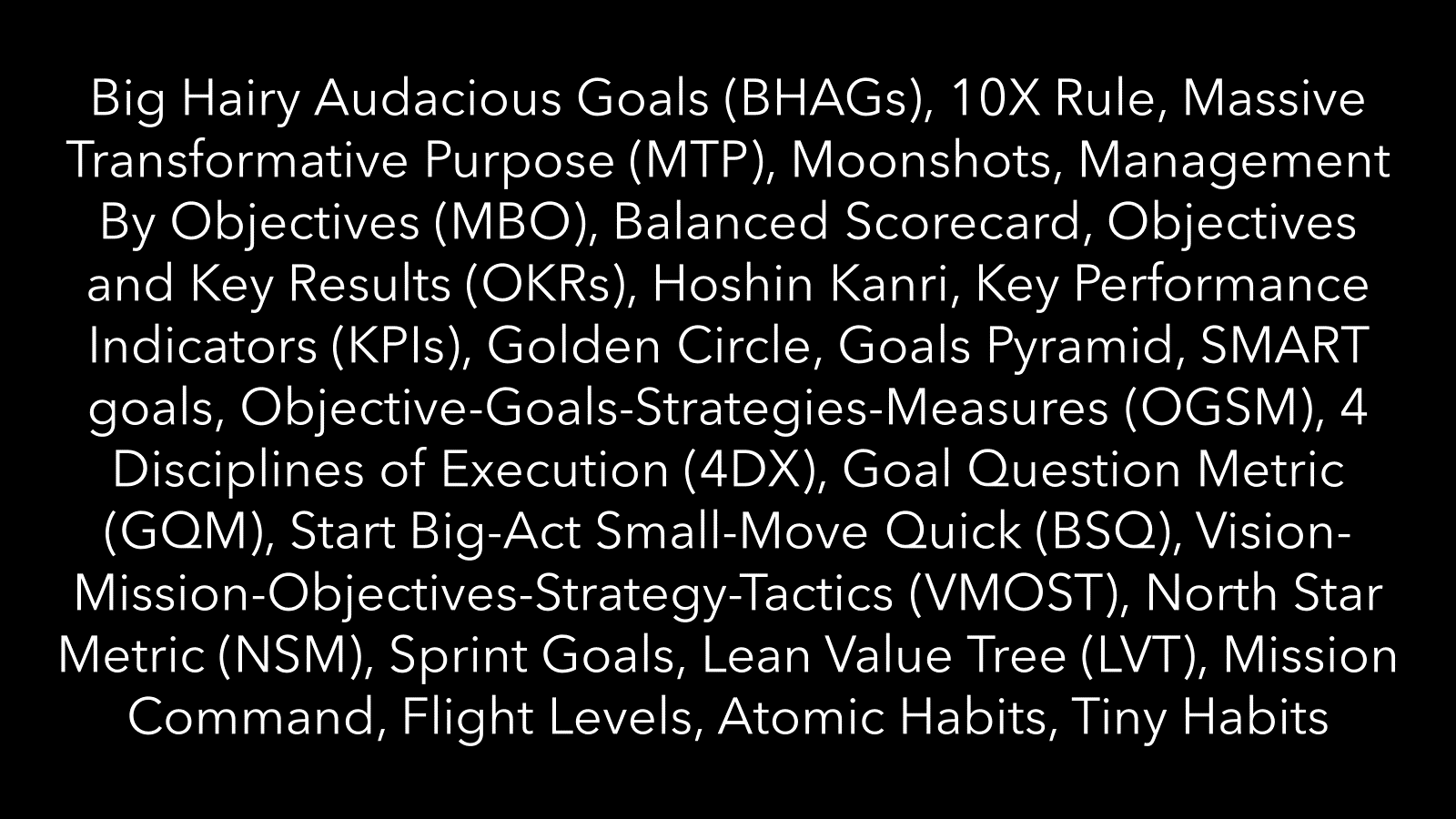An Objection to Objectives
Author: Jurgen Appelo
Organizations are addicted to goal-setting. Aiming for what’s new must be balanced with protecting what we have.
I'm sure this sounds familiar:
Your file folder is a chaotic mix of documents, your team's agreement hasn't been updated in two years and fails to mention the latest tools, and the member lists in your collaboration tools include individuals who left the company a year ago (and still have access!). Additionally, a hacker accessed some of your personal files due to outdated security measures, and your blog's most recent post from 2021 optimistically states, “Expect the next update soon!”
These examples, though seemingly minor, illustrate what can happen when the importance of regular maintenance is overlooked in an organization. Of course, there are more significant examples. Familiar ones include:
The Chernobyl disaster, a result of reactor design flaws coupled with neglected maintenance, leading to malfunctioning equipment. The Space Shuttle Challenger disaster, traced back to a failed O-ring seal due to insufficient maintenance practices. The Deepwater Horizon Oil Spill, where a lack of proper maintenance led to a malfunctioning blowout preventer with critical faulty components.
This raises a question:
What hinders individuals from dedicating adequate time and resources to ensure their systems are safe, secure, and up to date?
I know the culprit: objectives.
Organizations are addicted to goal-setting.
Do any of these ring a bell for you? Big Hairy Audacious Goals (BHAGs), 10X Rule, Massive Transformative Purpose (MTP), Moonshots, Management By Objectives (MBO), Balanced Scorecard, Objectives and Key Results (OKRs), Hoshin Kanri, Key Performance Indicators (KPIs), Golden Circle, Goals Pyramid, SMART goals, Objective-Goals-Strategies-Measures (OGSM), 4 Disciplines of Execution (4DX), Goal Question Metric (GQM), Start Big-Act Small-Move Quick (BSQ), Vision-Mission-Objectives-Strategy-Tactics (VMOST), North Star Metric (NSM), Sprint Goals, Lean Value Tree (LVT), Mission Command, Flight Levels, etc.
Setting goals is certainly beneficial, and striving toward them can significantly contribute to employee engagement and business success. But it’s not the only thing we should do. Aiming for what’s new must be balanced with protecting what we have.
In my personal experience, an excessive focus on new objectives resulted in a neglected mailing list, an unfinished video project, a backlog of unpublished blog posts, a community platform I don’t know how to manage, and a personal website that's been outdated for already five years. By signing up for too many new things, I lost sight of maintaining what I already had.
This issue is widespread in organizations and is exacerbated by the continuous promotion of OKRs, moonshots, SMART goals, sprint goals, and so on. While adapting to change is vital, protecting what we already have is equally important. In today's fast-paced business environment, where adaptation is often seen as the foremost priority, perhaps it's time to give more attention to securing our existing systems.
What's the value in celebrating an achieved goal if the organization is collapsing behind you?
This article is part of the unFIX BRAIN starter kit series. If you want to stay up to date, sign up to our newsletter!

